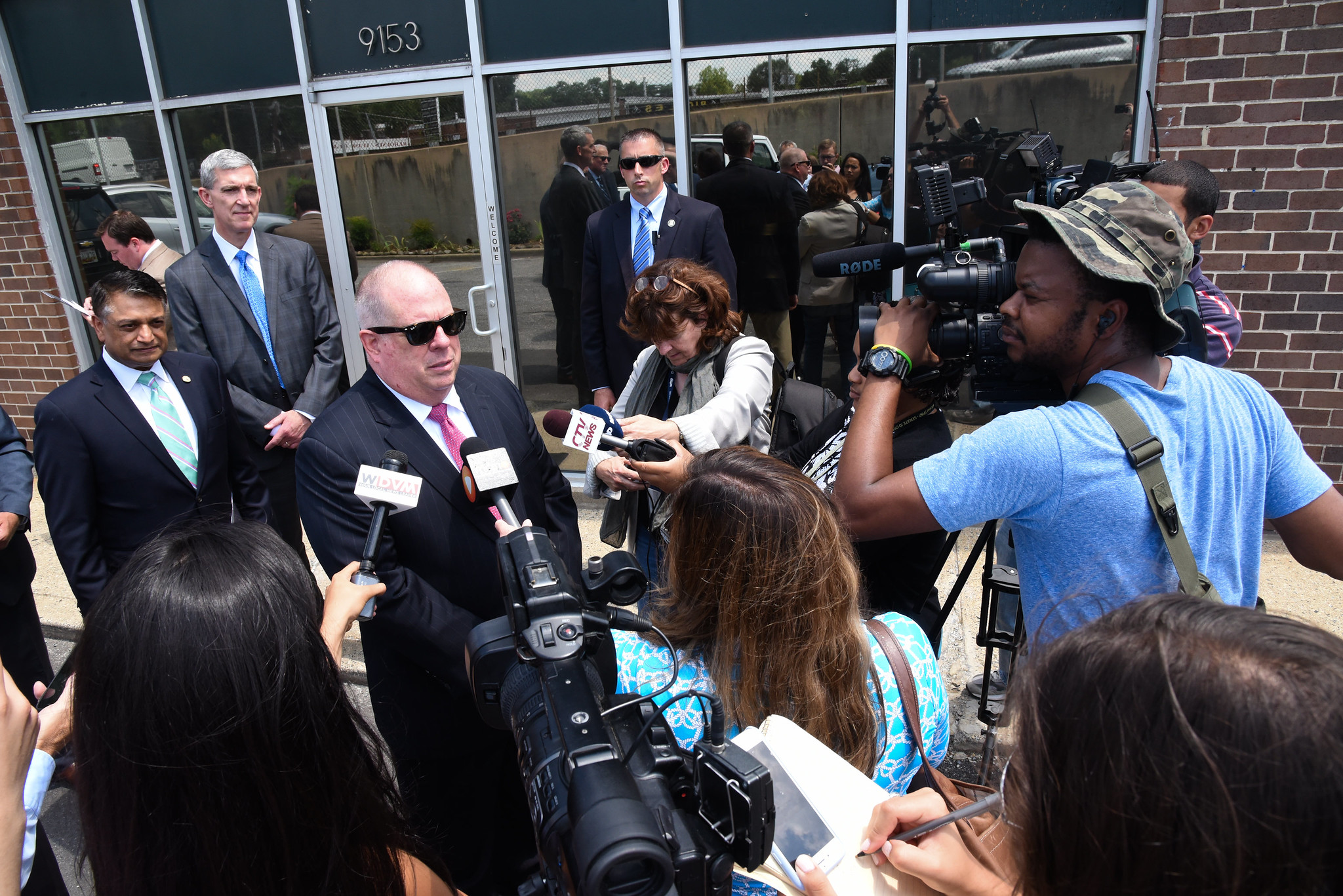New Research: Experts Find Critical Flaws in Hogan’s Climate Plan
During a phone-based news briefing, economic and climate policy experts released new research detailing failings in Hogan Administration’s Draft Greenhouse Gas Reduction Plan
ANNAPOLIS, MD — According to new findings released today, Maryland Governor Larry Hogan’s draft Greenhouse Gas Reduction Plan is critically flawed and falls far short of what is needed to address the climate crisis.
See the full report at this link.
A recording of the telephone press call will be made available by request.
The review was authored by the Center for Climate Strategies (CCS), an independent non-profit that assists governments across the U.S. and around the world to develop climate action plans. CCS has extensive experience previously working on climate policy with the Maryland Department of Environment (MDE), the same agency now responsible for the Hogan Administration’s flawed Greenhouse Gas Reduction Plan.
“This policy review, written by MDE’s own former consultants, clearly shows that Maryland’s climate goals are insufficient for doing our part in addressing the climate crisis,” said Steven Hershkowitz, Maryland Director of the Chesapeake Climate Action Network. “Making matters worse, we now know Maryland’s climate action plan likely does not put us in the position to reduce greenhouse gas emissions by 40 percent by 2030, let alone the 60 percent reduction called for by leading climate scientists. With President Trump sabotaging national climate actions, it’s up to the states to act — but under the Hogan Administration’s plan, Maryland is setting the entire climate movement back.”
The findings include that:
- Maryland’s current greenhouse gas emissions reduction targets are weak compared to other states and inadequate for meeting critical international benchmarks for averting the climate crisis.
- Due to overly optimistic assumptions and flawed methodology, MDE’s draft plan is unlikely to result in meeting even these weak emissions reduction targets.
- The plan is especially flawed when it comes to reducing greenhouse gas emissions reductions in the transportation sector, due to unrealistic assumptions on widespread electric vehicle adoption, dubious claims that highway widening will result in fewer emissions, and a lack of proposed strategies for reducing car travel demand.
- MDE does not account for methane leakage in inventories or future scenarios, even as the Hogan Administration is supporting an expansion of fracked-gas infrastructure.
- Inconsistent calculations for the emissions inventory between 2014 and 2017 call into question the accuracy of MDE’s data. See the full report at this link.
“As some of the world’s largest emitters, US states must do their fair share to stabilize the climate. As a high emitter with a strong economy and great foundation from past climate action, Maryland can demonstrate national leadership,” said Thomas D. Peterson, President and CEO of the Center for Climate Strategies. “Key areas needing improvement in Maryland’s Draft Plan include action on targets, transportation, and energy issues. Better transparency and stakeholder involvement in planning decisions are also needed.”
“The administration’s current emissions reduction commitments do not reflect the scale of the climate crisis and its impacts on our state,” said Wandra Ashley-Williams, Maryland Regional Director of ClimateXChange. “Without the level of ambition required to tackle this crisis, we will also miss out on the opportunity to uplift communities through a broader transition.”
The Greenhouse Gas Reduction Act of 2016 — which was passed by super majorities in the General Assembly and signed into law by Governor Larry Hogan — requires MDE to reduce greenhouse gas emissions 40 percent below 2006 levels by 2030, and for MDE to develop this plan by the end of 2018. In October of this year, Maryland Governor Larry Hogan’s Department of Environment released its legally mandated draft draft plan. This came two weeks after 26 Maryland-based advocacy organizations sent a letter to the agency expressing “deep concern” that they had not yet released the plan nearly ten months after it was due.
MDE is now soliciting public comment on its draft Greenhouse Gas Reduction Act Plan through a series of community forums across the state.
About the Center for Climate Strategies
The Center for Climate Strategies (CCS) helps government and stakeholders work together to develop policy and program actions that achieve goals for climate stabilization and resilience, economic development and private investment, energy and resource security, health and environmental quality, and socioeconomic equity. CCS is an independent, expert 501c3 nonprofit organization located in Washington, DC with global partners.
###
The Chesapeake Climate Action Network is the oldest and largest grassroots organization dedicated exclusively to raising awareness about the impacts and solutions associated with global warming in the Chesapeake Bay region. For 17 years, CCAN has been at the center of the fight for clean energy and wise climate policy in Maryland, Virginia, and Washington, D.C. For more information, visit www.chesapeakeclimate.org





